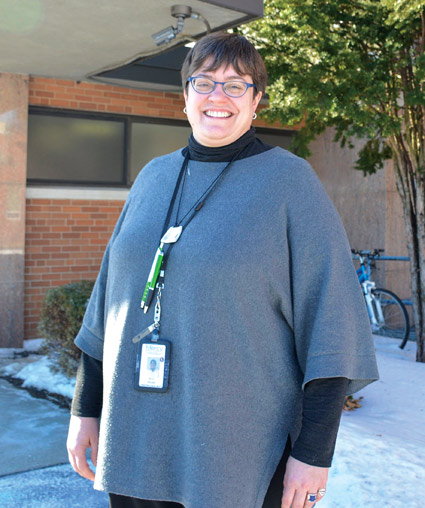
By Debbie Gardner
debbieg@thereminder.com
Beth Prullage, LICSW, Director of Clinical Services for Mercy Behavioral Health Services, has worked with children, adolescents and as Director of Social Services during her 14 years at the hospital. An adjunct professor of social work at Smith College, she brought a wealth of knowledge to Prime’s questions about loneliness and isolation. Below are her insights:
Q: There’s been a lot of talk about how social isolation impacts physical and mental health. Lately, loneliness has also been considered a factor. What’s the difference between these two conditions?
“Both social isolation and loneliness are conditions that can impact a person’s health, and it is important to understand the difference between them. Social isolation is determined by the number of interactions with other people or connections to others that one may have in their life; while loneliness is a felt experience for someone, and is a measure of someone’s desired level of social interactions/engagement to their actual experience. Because loneliness is a subjective experience, it may also take into account the quality of relationships that someone may experience, and the degree to which they may feel known by others.
“Social isolation and loneliness impact a person’s health in many ways. This experience can increase stress hormones and inflammation in the body, for example, which is correlated with increased incidence of type 2 diabetes, heart disease, arthritis and dementia. Loneliness can contribute to experiences of depression for people of all ages. In addition, the research literature has shown that fewer social interactions in older adults may lead to impaired immune response, or accelerated cognitive decline.”
Q: Social isolation seems fairly easy to spot. Loneliness may be harder. Are there telltale clues that could help family and friends identify either or both conditions?
“Of the two experiences, loneliness is harder to recognize. There is also a lot that researchers are continuing to explore in this area. For example, a recent NYTimes column on this topic by Jane Brody cited research that found that adolescents and young adults were the most likely age cohort to experience loneliness. Similarly, while living alone may be correlated to loneliness, it is not uncommon for married people to experience loneliness, a finding that may challenge our preconceived notions about who might be at risk for feeling lonely.
“As a result, the best “telltale clue” that we might have in spotting loneliness is listening carefully to others’ descriptions of their lives: are people expressing dissatisfaction in the relationships that they have? Some social scientists have also connected increased prevalence of loneliness to increased engagement with social media, a forum that offers people many opportunities to compare their lives to other peoples’ lives, and perhaps conclude that they are not measuring up to others in a wide range of domains. Perhaps the best way to know if others are lonely is to talk to someone about it!
“While loneliness is harder to recognize, it may be harder to find individuals who are socially isolated. Many people who have fewer social interactions may not view this as a problem, as it may be their preferred way of being in the world. For others, their social isolation may contribute to their experience of loneliness, and these individuals are particularly vulnerable. Helping loved ones connect to activities or community can be very important; as well as reaching out to neighbors or acquaintances who may have few others in their life.”
Q: If you spot either condition in a loved one, what should be your next step? How should your approach differ between social isolation and loneliness?
“Helping people to identify that they are feeling lonely is a positive first step. Encouraging people to participate in activities where they can have social connection with others is also a good idea. This might be in the form of a special interest group or activity; volunteering; connecting to a community of peers; using warm lines to check in with others, such as Call2Talk run by the United Way in Central MA – 508-532-2255. This service also has a program called Telecheck, where trained volunteers will reach out to seniors one to two times per week for social conversation.”